Ruth Downie - Tabula Rasa
Здесь есть возможность читать онлайн «Ruth Downie - Tabula Rasa» весь текст электронной книги совершенно бесплатно (целиком полную версию без сокращений). В некоторых случаях можно слушать аудио, скачать через торрент в формате fb2 и присутствует краткое содержание. Год выпуска: 2014, ISBN: 2014, Издательство: Bloomsbury USA, Жанр: Исторический детектив, на английском языке. Описание произведения, (предисловие) а так же отзывы посетителей доступны на портале библиотеки ЛибКат.
- Название:Tabula Rasa
- Автор:
- Издательство:Bloomsbury USA
- Жанр:
- Год:2014
- ISBN:9781620403235
- Рейтинг книги:5 / 5. Голосов: 1
-
Избранное:Добавить в избранное
- Отзывы:
-
Ваша оценка:
- 100
- 1
- 2
- 3
- 4
- 5
Tabula Rasa: краткое содержание, описание и аннотация
Предлагаем к чтению аннотацию, описание, краткое содержание или предисловие (зависит от того, что написал сам автор книги «Tabula Rasa»). Если вы не нашли необходимую информацию о книге — напишите в комментариях, мы постараемся отыскать её.
Tabula Rasa — читать онлайн бесплатно полную книгу (весь текст) целиком
Ниже представлен текст книги, разбитый по страницам. Система сохранения места последней прочитанной страницы, позволяет с удобством читать онлайн бесплатно книгу «Tabula Rasa», без необходимости каждый раз заново искать на чём Вы остановились. Поставьте закладку, и сможете в любой момент перейти на страницу, на которой закончили чтение.
Интервал:
Закладка:
“No, I don’t,” said Accius. “And you don’t, either.”
“No, sir.”
“There is no body, Ruso, because the wall is regularly patrolled, and besides, if there were, how would we find it?”
“Dogs, sir?” Ruso suggested, aware that regularly did not mean frequently.
“We’ve had men take a stroll up there with dogs, but it’s raining and it’s windy, and they can’t tell the dog what to sniff for. Besides, we’ve got whole stretches up to twelve or sixteen courses high now. We’re not going to start hacking the wall apart just because a fox has pissed on it.”
“Yes, sir.” The tribune had a point. Conducting an obvious search for a body would only suggest that the officers believed in it too. Besides, how far would they go? Demolish one side to examine the core? Knock it all flat? Dig the foundations out? Defenses had been rising across the land from sea to sea since the spring: vast barriers of turf and stone in which, when you thought about it, dozens of bodies could be concealed. And now, of course, Ruso was. Thinking about it.
This was not the place to say so, but the rumor was a masterly piece of sabotage. It was already slowing down progress, and there would be people who wanted to believe it. There was never any shortage of missing persons. Apart from the regular flow of deserters, there were ordinary civilians who simply went out one day and never came back. Some of them wouldn’t want to be found. Others must have been expecting to return home, but never made it. Most, like the girl who had run away from her violent boyfriend, would leave families behind who were desperate for any scrap of news. As this wretched rumor spread, more and more people would be wondering if the emperor’s wall was a prison for the unquiet spirit of a relative whom it was their duty to find and lay to rest with a proper burial.
While everyone would want to know who it was, one thing was for certain: Nobody would want to be up there the day after tomorrow when the sun went down to mark the start of Samain, the night when the-what was it? When the walls between the living and the dead melt away.
Accius reached for his cloak, which he had hung to drip on the back of the door. The stacks now teetered perilously close to the edge of Pandora’s cupboard. “Anyway,” he said, “if there is anything in this tale, it’s more likely to have happened miles away over on the turf section.”
“Yes, sir,” said Ruso, noting that Accius had just undermined his former denial. “Sir, about my clerk . . .”
“Let me know when he turns up.” Accius flung his cloak around his shoulders. A pile of writing tablets cascaded off the cupboard and clattered across the floorboards.
Ruso lunged across the room to stop a second landslide. Accius glared at the cupboard and then at Ruso, who seized the opportunity to say, “We need someone to sort this out, sir.”
“At least you could put things away,” Accius observed. “This is sheer laziness. You can’t even get in there with all this rubbish cluttering the place up. You shouldn’t have kit stored in here.” He shoved Candidus’s bag aside with one foot and reached for the twine holding the cupboard handles together. “What’s in-”
“Sir, no!”
But it was too late. The doors swung wide, and the tribune’s feet were buried in an avalanche of wooden writing tablets, crushed scrolls, old inkpots, and tangles of twine.
Chapter 17
Ruso was barely aware of his steady pace along the road or of the cold rain trickling down his neck. He was concentrating on rehearsing what to say. Every time he came up with a sentence that was not an apology, he heard the voice of Senecio dismissing it.
“We had to treat everyone the same.”
You ate at our hearth.
“If word gets around that we didn’t search you, you could have trouble with your own people.”
It is not up to a Roman to save us from our own people. And besides, it was a lie. He had not considered them at all.
“I am sorry you feel insulted.”
But you are not sorry for the insult itself?
“I cannot apologize for the Legion. I apologize for my judgment.”
So you think you should not have sent those men?
“I should have come with them. I should have explained. But I was on duty at the hospital.”
The reply to that came in his own voice: “You were only discharging Regulus for transfer and talking to Pertinax. Things that could have waited. You should have thought to go with them.”
And then there was You have come wearing armor and a helmet this time, to which he would reply, “We’ve been ordered to wear it when not on army property.” But of course Senecio would not comment: He would merely observe this further insult, and Ruso would have no chance to explain.
Nor would he be able to ask the question the Legion would like answered, which was: Why are people saying there is a body in the wall?
Approaching the turn to the farm track, he pushed distracting thoughts aside and took stock of his surroundings. A carriage approaching from the east: a squad of infantry marching off toward the brighter sky in the west.
The russet shape of a squirrel ran out into the middle of the track. It caught sight of him, and scampered off into the woodland on the other side. Probably nobody lurking in the trees, then, but the danger would not lie here, in sight of the main road. If Conn and his friends wanted some fun, they would be waiting farther along, where the track disappeared around a bend to the right. There, they could be seen from neither road nor farm.
He moved ahead steadily, alert to the sound of water dripping off leaves and the squelch and crunch of his own boots, and pushing aside the voice in his mind that said, You should never have come alone.
Rounding the corner, he thought he glimpsed the figure of a legionary amongst the trees on his left, but then it was gone. Wishful thinking. He moved faster. Another forty paces. Thirty. Almost there . . .
As he approached the gate, Conn and the one-eyed man stepped out from behind the main house. The big black dog trotted along behind them. They ignored Ruso’s greeting and marched up to block the gate, farm implements casually laid over their shoulders. Conn might conceivably have been working under shelter with that pitchfork, but there was no call for a scythe in weather like this.
Ruso was wondering whether Branan would appear when the boy dropped out of the tree by the gate and ran across to join his older brother. He was not looking friendly now. He had picked up an axe that was half as tall as he was.
When the boy had taken his place, Conn said, “There is nothing for you in this place, soldier.”
The other man’s one eye and empty socket glared at Ruso. “Perhaps he’s come to see for himself.”
“I would like to speak with your father.”
Conn said, “My father does not want to hear you.”
“That is for him to decide. My wife promised him I would come.”
They stood facing each other. Rain trickled down Conn’s face and dripped off the end of his nose. Ruso knew that if he flinched now, he had lost.
Branan looked from one to the other of them. “Shall I ask Da, Conn?”
“I’ll do it. You watch him.” Conn strode away into the house. Branan shifted his grip on the axe handle and lifted his chin, then spoiled the effect by taking one hand off the axe to wipe the rain off his nose and shove his wet curls out of his eyes.
Ruso, still behind the flimsy protection of the gate, glanced around the yard. He had barely noticed when he was here before, but he saw now that the main house, the biggest of the buildings, had so many logs stacked under the broad eaves that the walls were almost hidden. A fat hayrick sat on a raised platform under its own thatched roof. He remembered the apples on the shelf indoors. This was what the family had worked through the summer and autumn to build up: the supplies that would, if their gods were kind, keep them and their animals from freezing and starving through the long, barren months of winter. This would be what the army had destroyed over at the house of Senecio’s sister.
Читать дальшеИнтервал:
Закладка:
Похожие книги на «Tabula Rasa»
Представляем Вашему вниманию похожие книги на «Tabula Rasa» списком для выбора. Мы отобрали схожую по названию и смыслу литературу в надежде предоставить читателям больше вариантов отыскать новые, интересные, ещё непрочитанные произведения.
Обсуждение, отзывы о книге «Tabula Rasa» и просто собственные мнения читателей. Оставьте ваши комментарии, напишите, что Вы думаете о произведении, его смысле или главных героях. Укажите что конкретно понравилось, а что нет, и почему Вы так считаете.
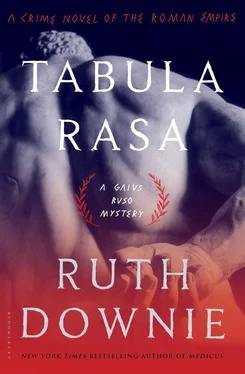


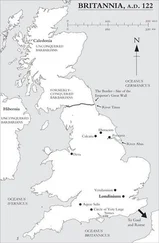
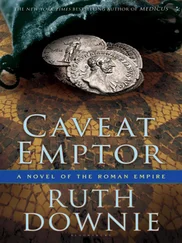
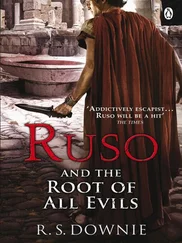
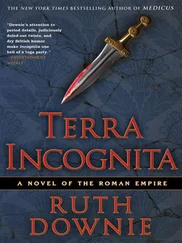
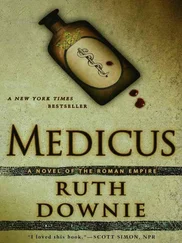
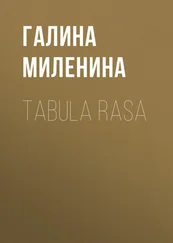
![Антон Архангельский - Tabula Rasa - Исходная точка [калибрятина]](/books/392380/anton-arhangelskij-tabula-rasa-ishodnaya-tochka-k-thumb.webp)


